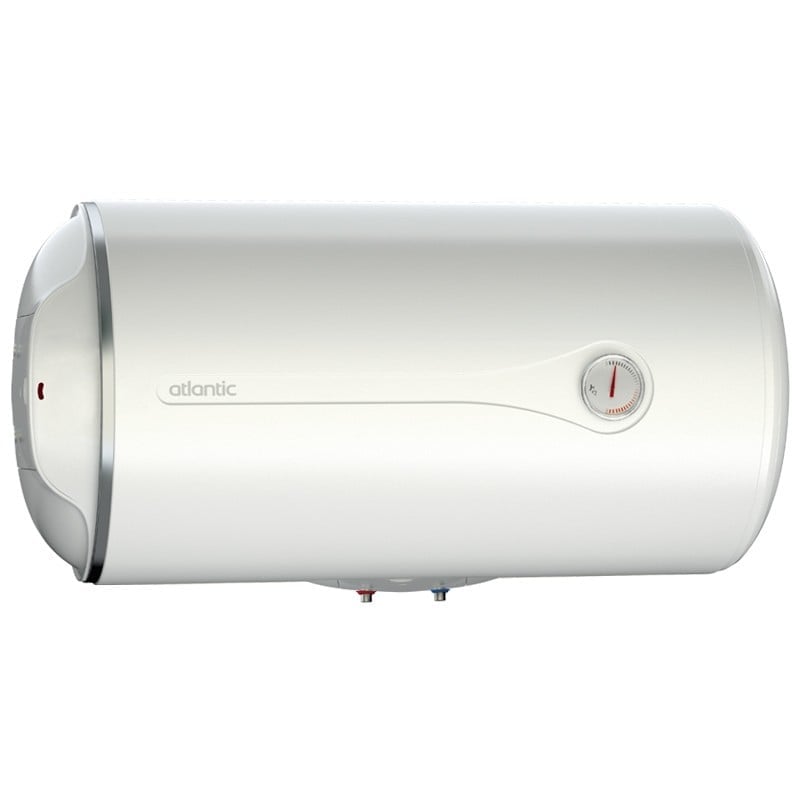
Are you wondering what the main differences are between a boiler and a water heater? Which one consumes more? Or how to choose between the two?
In this post we analyse their main characteristics and try to help you in your choice.
Index:
- Differences between a boiler and a water heater
- Electric or gas water heater?
– Electric water heater
– Gas water heater - Boiler: heating and hot water
– Condensing boilers - How to choose
Differences between a boiler and a water heater
When one is in the midst of renovating a flat, one can easily be faced with the choice between installing a water heater or a boiler. What can materially tip the scales in favour of one or the other? To make an informed choice, one must first understand the differences between a boiler and a water heater.
The water heater is used to produce and/or heat domestic hot water (DHW), i.e. the water that comes out of the taps and that we use in the bathroom or kitchen. This device, therefore, is not used for the heating system (radiators).
The boiler, on the other hand, is used not only to heat domestic water, but also the water that goes into the radiators.
On the basis of this difference, therefore, we can say that if your heating system is centralised (i.e. condominiums), it may be convenient to install a water heater. If not, the choice will have to fall on the boiler.
Another fundamental factor to consider, valid in both cases, when choosing the right boiler or water heater for you, is the capacity you need. In fact, there are different sizes and the choice of one rather than the other depends mainly on the size of the system you are referring to, the number of people in the house and the general use you intend to make of it.
Electric or gas water heater?
The water heater is, therefore, preferred when the heating system is central. There are two types to choose from:
- Electric water heater
- Gas water heater
The common feature is that both are only used to heat domestic water. Let us, however, analyse the differences:
Electric water heater
The electric water heater has the advantage of not requiring a flue gas outlet.
It works thanks to an internal heating element, which heats the water inside the water heater. This, of course, results in a higher consumption (and thus a larger financial outlay) of electricity, offset, however, by a lower initial cost (to purchase it).
Immediacy plays in its favour: when you turn on the tap, hot water comes out practically immediately, without having to wait and consume large quantities in the meantime. The problem is that, when the hot water in it runs out, you have to wait for it to recharge and, in the meantime, you only have cold water.
As already mentioned, there are various capacities and sizes, including some that are small enough to be installed below a sink.
Gas water heater
The gas water heater has the advantage of consuming very little electricity.
Most models on the market today even run on batteries, having to power only a small display and the combustion connection.
Gas combustion is precisely how this type of water heater works: by burning gas, it heats the water that passes through it; unlike the electric one, then, it ensures a continuous production of hot water.
It can be storage or instantaneous. In the first case, water is stored inside the water heater, heated by the gas and delivered when needed. In the second case, the water passes inside the water heater and is heated instantaneously by the gas and then dispensed.
Boiler: heating and hot water
The boiler should be installed when you need to heat both domestic water and water for the heating system.
Among its disadvantages there is the initial price of this device, which is higher than that of the water heater, and the additional cost of installation. In fact, the installation must be carried out by a professional technician, who must do the initial ignition and issue a commissioning certificate for the boiler.
On the other hand, the gas consumption of the boiler (net of price increases in the current historical period) generates a saving that is often net compared to the electrical consumption of the water heater. Even in the case of boilers, we can distinguish between storage and instantaneous boilers.
Storage boilers retain the characteristic of being required to heat both domestic water and the heating system, but function like a water heater, i.e. the device fills up with water that is heated.
As this is consumed, new cold water is added, only to be reheated and return to the initial supply of hot water.
In this case, the right boiler capacity must be chosen, because the risk with too low a capacity is that the water will be lukewarm at certain times.
Instantaneous boilers, on the other hand, are only the most commonly used and have the particularity of heating water at the immediate moment of passage.
Condensing boilers
Today, there are boilers on the market that run on natural gas (the very common city gas), LPG boilers and propane-air boilers.
Most models are sold with a special conversion kit, which enables the boiler to operate with a gas other than the one for which it was produced.
Some top-of-the-range models even automatically recognise the gas that enters them and adapt accordingly.
Currently, condensing boilers are required to comply with the law. These offer a very high energy efficiency of up to 98%.
Condensing technology allows low emissions of pollutants. In addition, gas consumption decreases by 30% compared to a traditional boiler.
How to choose
After trying to understand the main differences between boilers and water heaters, we realised that they basically perform the same function, heating water, but in a different way. Within this difference, they have an even greater one: the water heater only serves to heat domestic water, the water that is consumed from the taps, while the boiler also serves to bring heat to the radiators.
Ultimately, the choice of one or the other depends on the objective needs of a flat (to have or not to have autonomous heating) and only secondarily on subjective needs (to seek greater energy and thus economic savings).
You might also be interested in:
- How to install an electric water heater Step by step Guide
- Low hot water pressure: Possible causes
- Towel radiators hydronic and electric: How to choose




